|

On eBay Now...
1897 Sir Redvers Buller V.C. WAR OFFICE re More JUBILEE MEDALS required For Sale
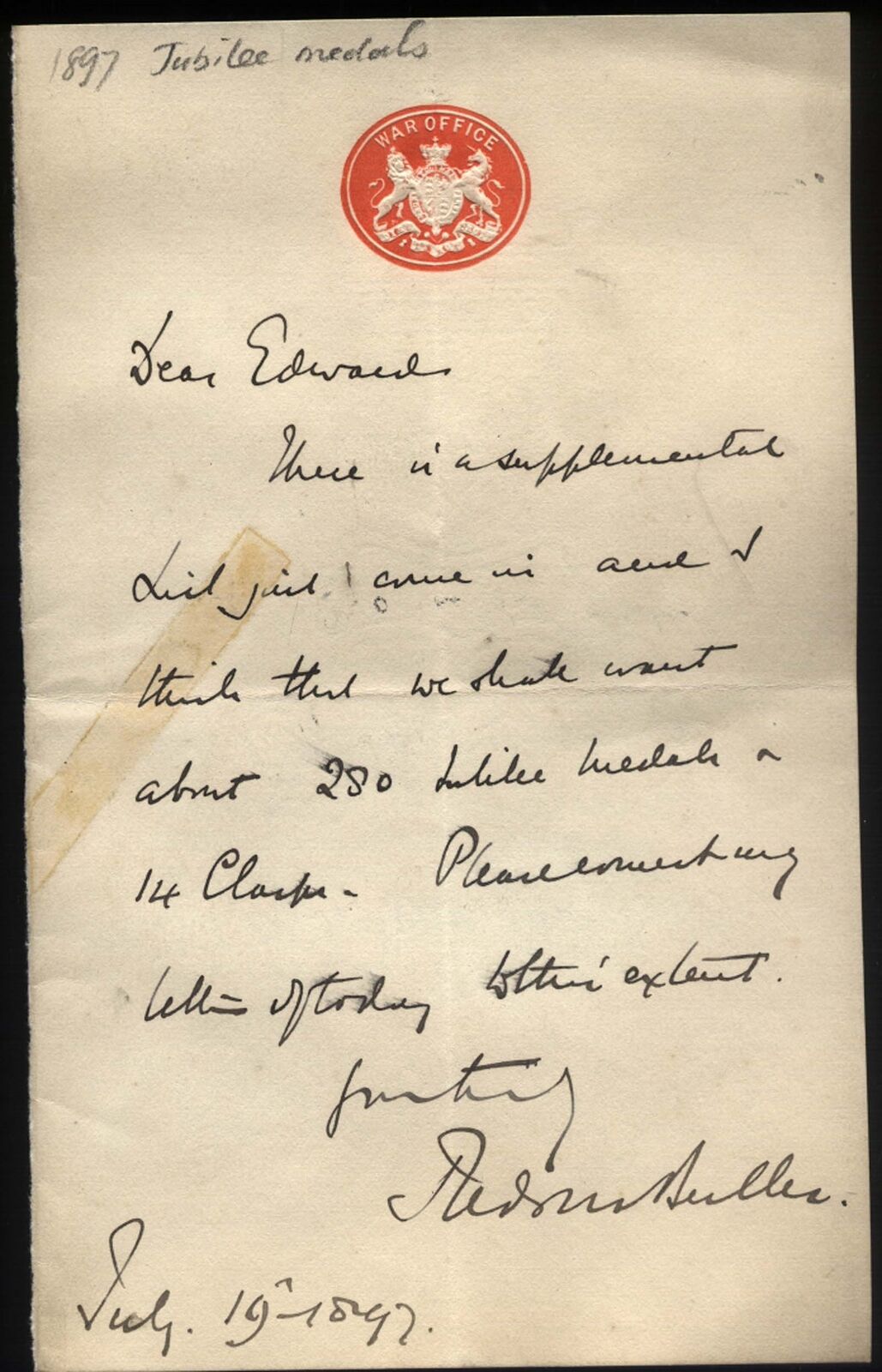
When you click on links to various merchants on this site and make a purchase, this can result in this site earning a commission. Affiliate programs and affiliations include, but are not limited to, the eBay Partner Network.

1897 Sir Redvers Buller V.C. WAR OFFICE re More JUBILEE MEDALS required:
$253.75
1897 Sir Redvers Buller V.C. WAR OFFICE re More JUBILEE MEDALS required, written from the War Office, July 19th and addressed to "Edwards". ( Fleetwood J. Edwards, Keeper of the Privy Purse to Queen Victoria from 1895 to 1901 ) General Sir Redvers Henry Buller, VC, GCB, GCMG (7 December 1839 – 2 June 1908)
was a British Army officer and a recipient of the Victoria Cross, the highest award for gallantry in the face of the enemy that can be awarded to British and Commonwealth forces. He served as Commander-in-Chief of British Forces in South Africa during the early months of the Second Boer War and subsequently commanded the army in Natal until his return to England in November 1900. Buller was the second son and eventual heir of James Wentworth Buller (1798–1865), MP for Exeter, by his wife Charlotte Juliana Jane Howard-Molyneux-Howard (d.1855), third daughter of Lord Henry Thomas Howard-Molyneux-Howard, Deputy Earl Marshal and younger brother of Bernard Howard, 12th Duke of Norfolk. Redvers Buller was born on 7 December 1839 at the family estate of Downes, near Crediton in Devon, inherited by his great-grandfather James Buller (1740–1772) from his mother Elizabeth Gould, the wife of James Buller (1717–1765), MP. The Bullers were an old Cornish family, long seated at Morval in Cornwall until their removal to Downes. The family estates, including Downes, inherited in 1874 by Redvers Buller from his unmarried elder brother James Howard Buller (1835–1874)[2] included 1,191 hectares (2,942 acres) of Devon and 880 hectares (2,174 acres) of Cornwall, which in 1876 produced an income of £14,137 a year. Early career After education at Eton, he purchased a commission in the 60th Rifles in May 1858.[4] He served in the Second Opium War and was promoted captain before taking part in the Canadian Red River Expedition of 1870. In 1873–74, he was the intelligence officer under Lord Wolseley during the Ashanti campaign, during which he was slightly wounded at the Battle of Ordabai. He was promoted to major and appointed a Companion of the Order of the Bath. Zulu War and Victoria Cross He then served in South Africa during the 9th Cape Frontier War in 1878 and the Anglo-Zulu War of 1879. In the Zulu War he commanded the mounted infantry of the northern British column under Sir Evelyn Wood. He fought at the British defeat at the Battle of Hlobane, where he was awarded the Victoria Cross for bravery under fire. The following day he fought in the British victory at the Battle of Kambula. After the Zulu attacks on the British position were beaten off, he led a ruthless pursuit by the mounted troops of the fleeing Zulus. In June 1879, he again commanded mounted troops at the Battle of Ulundi, a decisive British victory which effectively ended the war. His VC citation reads: For his gallant conduct at the retreat at Inhlobana, on the 28th March, 1879, in having assisted, whilst hotly pursued by Zulus, in rescuing Captain C. D'Arcy, of the Frontier Light Horse, who was retiring on foot, and carrying him on his horse until he overtook the rear guard. Also for having on the same date and under the same circumstances, conveyed Lieutenant C. Everitt, of the Frontier Light Horse, whose horse had been killed under him, to a place of safely. Later on, Colonel Buller, in the same manner, saved a trooper of the Frontier Light Horse, whose horse was completely exhausted, and who otherwise would have been killed by the Zulus, who were within 80 yards of him. In an interview to The Register newspaper of Adelaide, South Australia, dated 2 June 1917, Trooper George Ashby of the Frontier Light Horse (also referred to as "Pulleine's Pets") attached to the 24th Regiment gave an account of his rescue by Col. Buller: ... it was discovered that the mountain was surrounded by a vast horde of Zulus. An attempt was made to descend on the side opposite to the pass. Cpl. Ashby and his little party endeavoured to fight their way down, and at last he and a man named Andrew Gemmell, now living in New Zealand, were the only ones left. With their faces to the foe, firing as they retired, they kept the Zulus at bay. Then an unfortunate thing happened, Cpl. Ashby's rifle burst, but, fortunately for him, Col. Buller, afterwards Sir Redvers Buller, who was one of the party, came galloping by, and offered to take him up behind him. Col. Buller was a heavy man, and his horse was a light one, and realizing this, Cpl. Ashby declined his generous offer. But the Colonel stayed with him, and, Cpl. Ashby having picked up a rifle and ammunition from a fallen comrade, the two men retired, firing whenever a foeman showed himself. They eventually reached the main camp, and for this service, as well as for saving the lives of two fellow-officers on the same occasion, Col. Buller received the Victoria Cross. Out of 500 men who made the attack on the Zjilobane Mountain, more than 300 met their death." First Boer War, Sudan and Ireland In the First Boer War of 1881 he was Sir Evelyn Wood's chief of staff and the following year was again head of intelligence, this time in the Egypt campaign, and was knighted. He had married Audrey, the daughter of the 4th Marquess Townshend, in 1882 and in the same year was sent to the Sudan in command of an infantry brigade and fought at the battles of El Teb and Tamai, and the expedition to relieve General Gordon in 1885. He was promoted to major-general. He was sent to Ireland in 1886, to head an inquiry into moonlighting by police personnel. He returned to the Army as Quartermaster-General to the Forces the following year and in 1890 promoted to Adjutant-General to the Forces, becoming a Lieutenant general on 1 April 1891.[7] He was appointed Honorary Colonel of the 1st (Exeter and South Devon) Volunteer Battalion, Devonshire Regiment, on 4 May 1892.[8] Although expected to be made Commander-in-Chief of the British Army by Lord Rosebery's government on the retirement of the Duke of Cambridge in 1895, this did not happen because the government was replaced and Lord Wolseley was appointed Commander-in-Chief of the Army instead. On 24 June 1896 Buller was promoted to full General. Second Boer War and sacking Buller became head of the troops stationed at Aldershot in 1898. He was sent as commander of the Natal Field Force in 1899 on the outbreak of the Second Boer War. On seeing the list of troops which would make up his Corps Buller is said to have remarked "well, if I can't win with these, I ought to be kicked." By early September 1899 he had serious thoughts that the Boers could not easily be browbeaten, and that White's forces in Natal might receive some punishment if they deployed too far forward. He arrived at the end of October.[10] He was defeated at the Battle of Colenso, during what was later to become known as Black Week. Defeats at the Battle of Magersfontein and Battle of Stormberg also involved forces under his command. Because of concerns about his performance and negative reports from the field he was replaced in January 1900 as overall commander in South Africa by Lord Roberts. Defeats and questionable ability as commander soon earned him the nickname "Reverse Buller" among troops. He remained as second-in-command and suffered two more setbacks in his attempts to relieve Ladysmith at the battles of Spion Kop and Vaal Krantz. On his fourth attempt, Buller was victorious in the Battle of the Tugela Heights, lifting the siege on 28 February 1900, the day after Piet Cronje at last surrendered to Roberts at Paardeberg.[11] After Roberts took Bloemfontein (13 March 1900), Buller correctly predicted that the Boers would take to guerrilla warfare.[12] Later he was successful in flanking Boer armies out of positions at Biggarsberg, Laing's Nek and Lydenburg. It was Buller's veterans who won the Battle of Bergendal in the war's last set-piece action. Buller was also popular as a military leader amongst the public in England, and he had a triumphal return from South Africa with many public celebrations, including those on 10 November 1900 when he went to Aldershot to resume his role as General Officer Commanding Aldershot District,[13] later to be remembered as "a Buller day". He spent the following months giving lectures and speeches on the war, was promoted to a Knight Grand Cross of the Order of St Michael and St George (GCMG) in Nov 1900,[14] and received the Honorary Freedom of the Borough of Plymouth in April 1901.[15] However, his reputation had been damaged by his early reverses in South Africa, especially within the Unionist government. When public disquiet emerged over the continuing guerrilla activities by the defeated Boers, the Minister for War, St. John Brodrick and Lord Roberts sought a scapegoat.[16] The opportunity was provided by the numerous attacks in the newspapers on the performance of the British Army. The matter came to a head when a virulent piece written by The Times journalist Leo Amery was publicly answered by Buller in a speech on 10 October 1901. Brodrick and Roberts saw their opportunity to pounce and, summoning Buller to an interview on 17 October, Brodrick, with Roberts in support, demanded his resignation on the grounds of breaching military discipline. Buller refused and was summarily dismissed on half pay on 22 October.[17] His request for a court martial was refused, as was his request to appeal to the King. Later life There were many public expressions of sympathy for Buller, especially in the West Country, where in 1905 by public subscription a notable statue by Adrian Jones of Buller astride his war horse was erected in Exeter on the road from his home town of Crediton (facing away from Crediton to the annoyance of its inhabitants). He received the Honorary Freedom of the borough of Blandford on 1 December 1902. Buller described himself as a Whig and a Liberal Unionist, but declined a number of offers, from both sides, to stand for Parliament at the 1906 election.[20] Buller continued his quiet retirement, until on 29 May 1907 he accepted the post of Principal Warden of the Goldsmiths' Company which he held until his death in 1908. Marriage and offspring In 1882, aged 43, he married Lady Audrey Jane Charlotte Townshend (d. 1926), widow of Greville Howard (son of Charles Howard, 17th Earl of Suffolk) by whom she had issue, and daughter of John Townshend, 4th Marquess Townshend by his wife Elizabeth Jane Crichton-Stuart, daughter of Lord George Stuart, younger son of John Crichton-Stuart, 1st Marquess of Bute. By his wife he had issue an only child and daughter: (Audrey Charlotte) Georgiana Buller (1884–1953), awarded the Royal Red Cross (R.R.C.) and a Dame Commander, Order of the British Empire (1920), of Bellair House, Exeter. She served as an administrator of the War Hospitals in Exeter during World War I[2] and died unmarried in 1953. Death, burial and succession Buller died on 2 June 1908, at the family seat, Downes House, Crediton, Devon, and is buried in the churchyard of Holy Cross Church in Crediton. The entire western side of the chancel arch inside the church forms an elaborate monument to Sir Redvers. As he died without male progeny he was succeeded in the family estates by his next surviving younger brother Arthur Tremayne Buller (born 1850), his father's fifth son. Legacy Historian Richard Holmes (1946–2011) commented that Buller has gone down as "one of the bad jokes of Victorian military history", and quotes a famous verdict that he was "an admirable captain, an adequate major, a barely satisfactory colonel and a disastrous general". Viscount Esher called him "a gallant fellow but no strategist".[22] Wolseley praised his "stern determination of character". At least one recent historian has been kinder to his reputation: Buller's achievements have been obscured by his mistakes. In 1909, a French military critic, General Langlois, pointed out that it was Buller, not Roberts, who had the toughest job of the war – and it was Buller who was the innovator in countering Boer tactics. The proper use of cover, of infantry advancing in rushes, co-ordinated in turn with creeping barrages of artillery: these were the tactics of truly modern war, first evolved by Buller in Natal. —?Thomas Pakenham
Lieutenant-Colonel Sir Fleetwood Isham Edwards GCVO KCB ISO (21 April 1842 – 14 August 1910) was Keeper of the Privy Purse to Queen Victoria from 1895 to 1901. Early life and personal life After attending Harrow School, Edwards entered Royal Military Academy Sandhurst in 1861. He received a commission in the Royal Engineers in 1863.[1] Edwards was married to Edith Smith-Masters, who died 9 March 1873.[2] He remarried in 1880 to Mary Routledge Majendie. Royal service Edwards served as Aide-de-camp to the Governor of Bermuda between 1867 and 1869, an Assistant Inspector of Works at the Royal Arsenal from 1870 to 1873, then as aide-de-camp to the Inspector General of Fortifications from 1873 to 1878,[4] and later was attached to the special embassy at the Congress of Berlin in 1878.[5] Edwards served as a Groom-in-Waiting to Queen Victoria from 1880 and 1895, whereupon he became Keeper of the Privy Purse until her death in 1901. He was designated as an Extra Equerry to the Queen from 1888 until her death. He served as an executor of Queen Victoria's will in 1901.[1] During his time as a member of Queen Victoria's court, a zebra died under the care of Edwards, which was said to greatly annoy the Queen.[6] Edwards was blamed for not contacting London Zoo, and the animal had to be buried at Windsor Castle. Between 1901 and 1910 he served as a Serjeant-at-Arms in the House of Lords to King Edward VII. He was appointed Paymaster of the Household in 1910 to King George V, which duty he performed until his death later that year. Honours 1877 Knight Commander of the Most Honourable Order of the Bath, KCB 2 February 1901: Knight Grand Cross of the Royal Victorian Order, GCVO[7] He also held the Prussian Order of the Red Eagle, 2nd Class, with Star. He was a Trustee of Queen Victoria's Jubilee Institute for Nurses. Cricket career Edwards narrowly failed to get into the first XI during his time at Harrow School.[8] He played a number of matches for the Royal Engineers, and for the Knickerbockers. In 1866 he made his only first-class cricket appearance, playing for I Zingari, a club he likely joined due to his close links with the Ponsonby family; many of whom he worked alongside at court. During this match, against a Gentlemen of the South including W. G. Grace and two of his brothers, Edwards top-scored for I Zingari in the first-innings, remaining 27 not out at the close of the innings. He only managed to score 12 runs in the second-innings, and his side lost by 121 runs to the Gentlemen.[9] In 1870 he became a member of the Marylebone Cricket Club (MCC) and he continued to play amateur cricket for I Zingari and other sides until 1872.[10] :
Powered by SixBit's eCommerce Solution

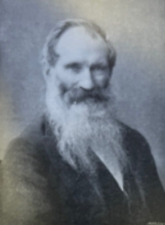
1897 Sir Isaac Holden English Inventor Manufacturer Millionaire $27.99
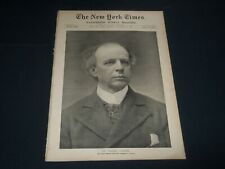
1897 SEPT 4 NEW YORK TIMES ILLUSTRATED MAGAZINE - SIR WILFRID LAURIER - NP 3867 $60.00
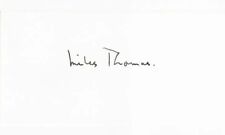
RARE "BOAC" Sir Miles Thomas Hand Signed 3.25X5.75 Card $139.99
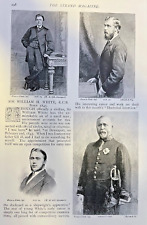
1897 British Ship Builder Sir William White illustrated $19.99
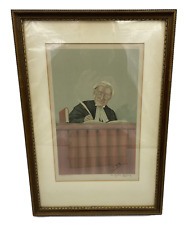
1897 Vanity Fair Spy Cartoon Sir James Stirling - Equity $50.00
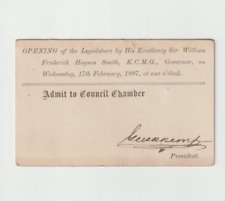
Sir William Frederick Haynes-Smith KCMG 1897 Invitation 1897 Council Chamber $35.00
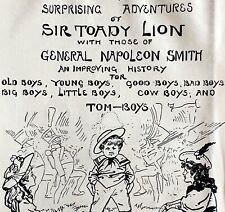
Sir Toady Lion 1897 Advertisement Victorian General Napoleon Smith DWFF11 $15.00
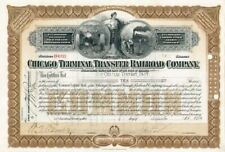
Sir Charles Tennant - Chicago Terminal Transfer Railroad - Stock Certificate - A $145.00
|